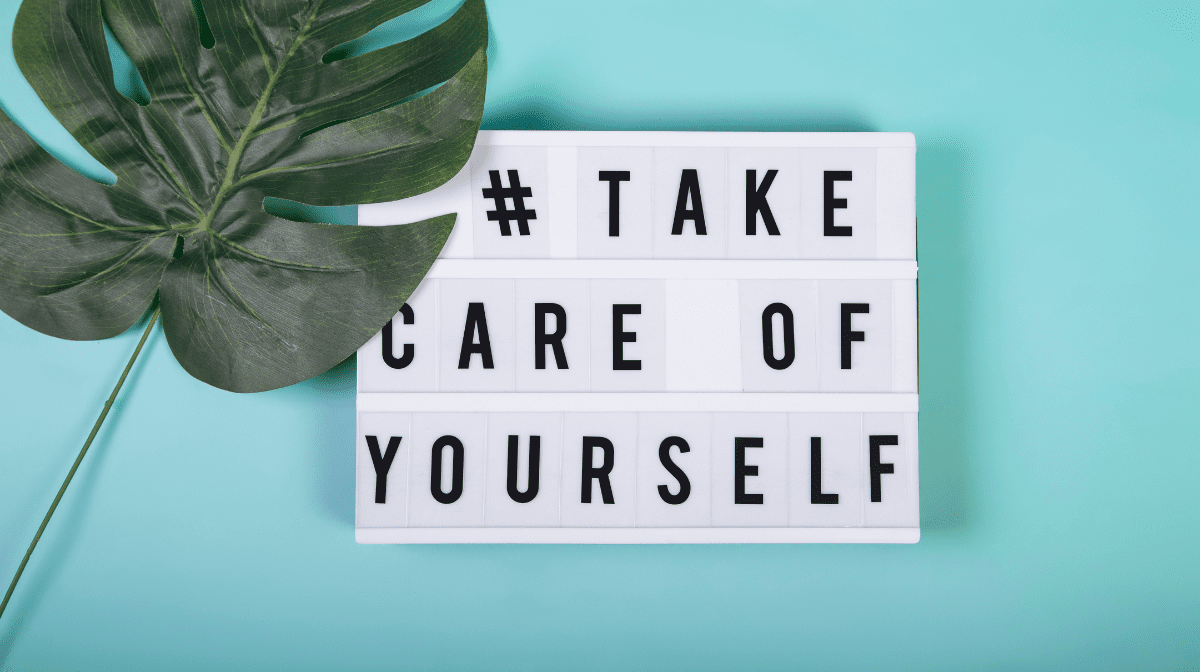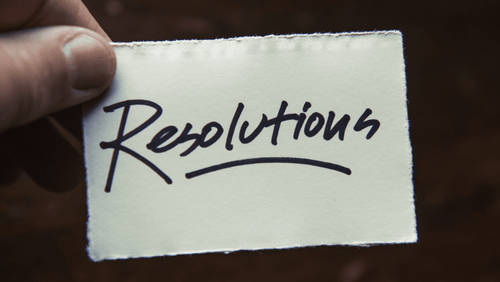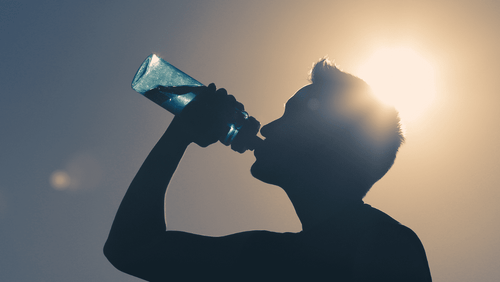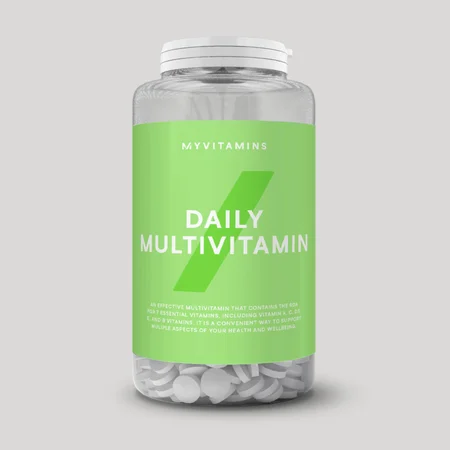
With summer in full swing, many have been focusing their efforts on themselves and forming self-care habits. Self-care is just what it sounds like—taking care of yourself and honing in on improving your own life. This refers to improving your physical, mental, and emotional well-being and involves incorporating positive habits into your lifestyle.
According to the research, self-care is associated with improved well-being and lower mortality rates and healthcare costs. Self-care is a common focus each year, as people are beginning to prioritize their own happiness more and more.
According to Statista, in 2020 and 2021, 81% of people prioritized eating healthy while another 74-76% prioritized getting enough exercise. There are many ways to go about self-care, and we're sharing five of the tried and true strategies to accomplish healthier, happier lives.
1. Get On a Healthy Sleep Schedule
You probably know that you feel a lot better when you get a good night's sleep as opposed to not sleeping well. But did you know that the times you go to bed and wake up, or your sleep schedule, can also affect how you feel, despite how many hours of sleep you're getting? This is due to our circadian rhythms or internal clock.
Circadian rhythms refer to the natural processes and changes going on in our bodies that follow a 24-hour cycle. Circadian rhythms are in synch with daylight. This means that when you wake up in the morning and go outside and get sunlight, your body then knows it is daytime and is triggered to begin certain processes, like warming your body temperature.
As humans in the modern world, we're not always in synch with our biological clocks. One of the ways to fall out of synch is to be on a sleep schedule that doesn't correlate with daylight hours. One study showed that people who work night shifts are 40% more likely to have depression. This is because they are working when the body thinks it should be sleeping.
To make it simple, a major way you can improve how you feel, your energy levels, and your mental state is to correlate your sleep schedule with your biological clock. To create a beneficial sleep schedule, experts recommend:
- Waking up at the same time each morning to establish structure
- Exposing yourself to bright light or sunlight during the day, especially within the first two hours that you're awake. This will stimulate your biological clock and make you feel more alert.
- Keeping day and night separate by keeping busy/active during the day, and winding down and dimming the lights as it gets later at night. This will help your body know when it is wake time vs. sleep time.
As for what time you should be going to sleep, the research points to an early bedtime. One study advises getting to bed at 10:00 PM every night. Another demonstrated that high school students who go to bed between 10 and 11 PM get better grades than their peers who go to sleep later.
Additional research has shown that early risers have a lower risk of depression and that those who sleep later at night may be twice as likely to develop the mental health condition. So a good place to start is by assessing your sleep schedule, and if you do tend to stay up late, try going to bed and waking up earlier.
2. Daily or Weekly Exercise
We all knew this one was coming. Exercise is praised as a self-care essential as it greatly benefits both mental and physical health. Exercise has been shown to improve conditions like depression, anxiety, and even post-traumatic stress disorder.
According to the Mayo Clinic, exercising for at least 30 minutes a day, for 3-5 days a week, can significantly improve depression and anxiety. But even if you do not suffer from a mental health condition, regular exercise can positively affect anyone and everyone.
Creating an exercise regimen for the week is an excellent way to create a purpose for yourself and feel accomplished, especially if you're feeling stuck. If you don't know where to start, you can begin small by taking 30-minute walks a few times a week. However you want to get your exercise in, it is a crucial part of self-care and will help you embrace self-improvement and start feeling better.
Remember to have fun with working out and choose activities and exercises you enjoy. If you don't like what you're currently doing, switch it up. Enjoying how you move your body will help you be more excited to get up every day and do it.
3. Mindfulness
A method that has been utilized through the centuries to help people calm their minds and feel better in their daily lives is mindfulness. Mindfulness is defined as a conscious awareness of the present moment and involves focusing on your thoughts and feelings and accepting them for what they are.
Mindfulness exercises have been shown to work as well as medication to reduce anxiety, and can even lower blood pressure. Mindfulness is a great practice to incorporate into your daily routine for self-care because it provides an opportunity to separate yourself from daily stresses and express and address your feelings in a healthy manner.
There are many activities one can practice to achieve mindfulness, some include yoga, meditation, and deep breathing exercises.
Check out mindfulness exercises and beginner routines here:

4 Exercise Styles to Improve Your Mental Health | Beginner Mindfulness Workout Routines
Train your body and your mind....
4. & 5. Create Goals & Positive Habits
A large part of self-care is creating positive change in your life. This can be difficult for many, which is why making goals is a useful way to get started. Setting goals for yourself allows you to be clear on what it is you want and acts as a reminder to work toward that goal. Oftentimes though, simply setting a goal for yourself is not enough to follow through and achieve that goal. If you're struggling with completing your goals, there are tactics you can try to make things easier.
One famous strategy for achieving goals is using micro-goals. This method involves breaking a larger goal down into smaller, more attainable actions. When we break our goals down into tinier steps of the larger picture, they seem more feasible and we are more likely to actually follow through.
When making goals, it is helpful to write them down. Many do this at the beginning of their day, known as 'setting your intentions' for the day. This can be helpful because it will organize your thoughts and provide some structure to your day. It will also help get you in a productive mindset for the day because you're outlining things you want to accomplish, and you have something tangible you can reference to remind yourself to take action.
Another way to create positive change in your life is by changing your habits. Habits are basically actions that we don't think about—we just perform them automatically. So if you swap out one bad habit, like reaching for your phone right when you wake up, for a healthy habit, like reaching for a glass of water instead, after repeating the behavior many times, you'll start to do it automatically without thinking about it. This makes for an easy way to create positive habits in your life and improve your day and overall wellness.
For more on micro-goals and habits, check this out:

Micro-Goals and Habits: How to Set Realistic Expectations This New Year's
Learn to tackle your resolutions this new year with a winning strategy: Micro-go...
Take Home Message
With life getting in the way, it is not always easy to practice self-care and focus on your own needs. But setting aside the time to be intentional about your daily choices and habits can have a huge impact on your mind, physical state, and overall well-being. Try incorporating some of these self-care strategies this summer or any time of year to enhance your life and feel your best. You got this.
READ THESE NEXT:

Snacking Is Not A Bad Thing | Nutritionist Explains
Plus, Elle's go-to granola bar recipe....

3 Reasons Your Calorie Deficit Isn’t Working
Siobhan O'Hagan shares her wisdom. ...

The Importance of Staying Hydrated
See why staying hydrated will help your body, mood, and overall wellness....

A Rutgers University Honors graduate, Jamie grew up on the Jersey shore and double majored in Comparative Literature and Anthropology in college. Jamie is an experienced writer in the health and wellness, biotech, and eCommerce fields. She loves writing with a purpose and has even written for the Department of Justice.
Jamie became drawn to exercise during her time in university and began to notice the physical and mental benefits of moving your body daily. Today, Jamie enjoys Pilates, light weight training, and going on long walks in nature daily.
Jamie is also passionate about eating right and prioritizing gut health and immunity. She is always trying the next innovation in health and wellness. When she’s not writing articles, Jamie enjoys reading, playing guitar, and finding dogs to play with.










